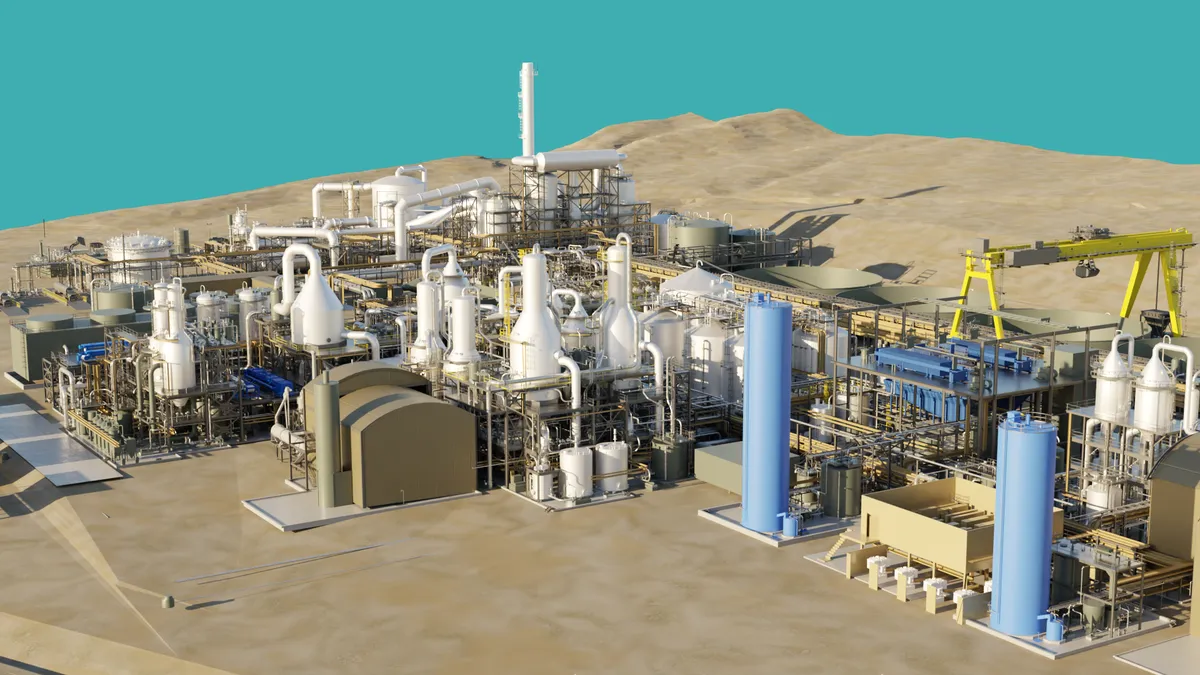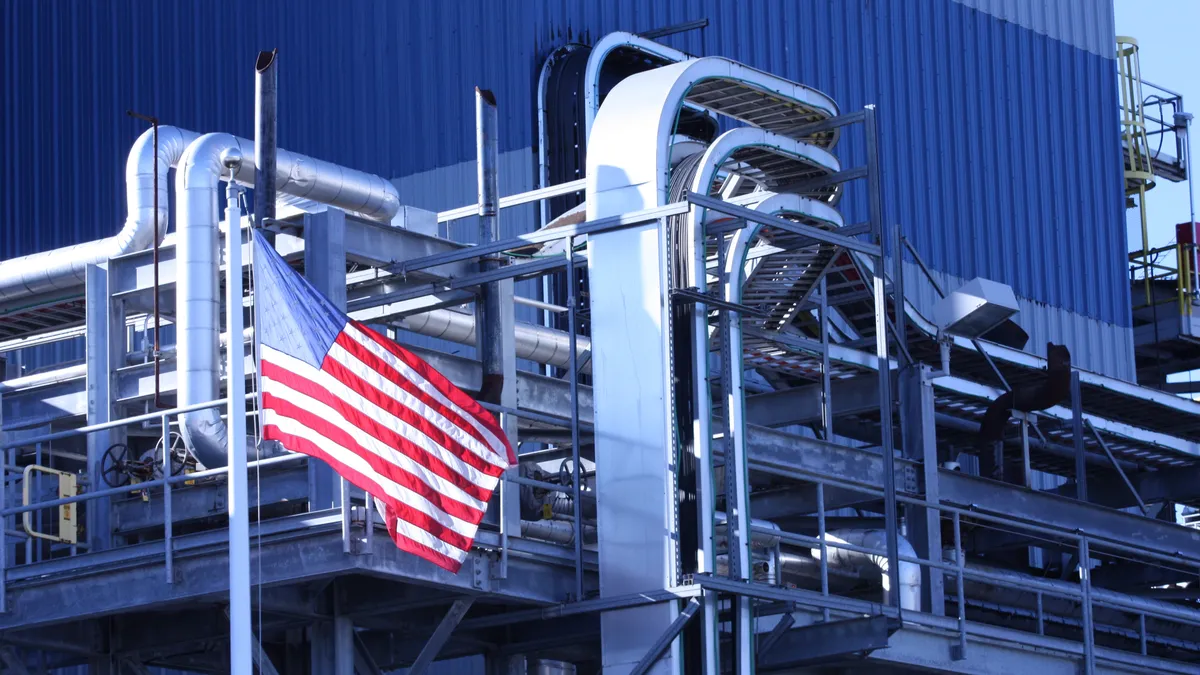The Department of Energy is offering to lend a lithium production company up to $700 million to build a processing site for the mineral.
The funds would go to Ioneer, with plans to develop a site in in Esmeralda County, Nevada, that could support lithium production for roughly 370,000 EVs a year, the department said in a Jan. 13 press release.
The processing site comes as Australia-based Ioneer signed a spate of supplier agreements over the past year with major companies including Ford, Caterpillar, NexTech Batteries and a Toyota and Panasonic joint venture called Prime Plant Energy & Solutions.
Founded in 2007 and formerly known as Global Geoscience, Ioneer initially focused its efforts on greenfield mineral discovery, according to its website. In 2018, the company changed its name and shifted focus to mineral processing and production.
The project, known as the Rhyolite Ridge Project, now heads to its final stage before construction can begin — getting approval from the Department of Interior, who must approve the project given its proposed location on federal land.
A project years in the making
Development of the potential site began in 2016, when Ioneer discovered that the area accumulated lithium, making it a prime site for a mine and processing facility, able to support the U.S.’s bourgeoning EV industry.
The area has already been tapped by others for its lithium reserves. Chemical company Albemarle operates a lithium mine about 16 miles away, and Tesla’s gigafactory lies about 200 miles away in Reno, Nevada.
Ioneer put a hefty price tag on the project initially, estimating it would take at least $785 million to build the site. In 2021, Ioneer entered into a joint venture with mining company Sibanye-Stillwater Limited, which agreed to contribute $490 million to the Rhyolite Ridge project in exchange for a 50% stake.
DOE steps in to fund Rhoylite Ridge — but it will take some approvals
The Department of Energy’s loan will bring Ioneer one step closer to beginning construction on the mine.
"The Conditional Commitment is the culmination of 23 months of discussions with and due diligence by the Loan Programs Office and it represents a significant milestone for Rhyolite Ridge," Ioneer Managing Director Bernard Rowe said in an email.
What’s more, Ioneer said the Energy Department’s loan and Sibanye-Stillwater’s contribution together would fund a substantial part of the preliminary capital expenditure estimate.
"This loan speaks to how the Project can help expand America's lithium supply chain, helping the Biden administration meet its goal to develop the necessary domestic critical minerals supply chains needed for the clean energy transition," the company said.
The Energy Department said in an email that the conditional commitment to support the Rhyolite Ridge project is based on "the satisfaction of certain conditions,” including passing an environmental impact review.
In December, the Bureau of Land Management said it had begun reviewing the Rhyolite Ridge Lithium-Boron Mine Project proposal and had published a notice of intent on the Federal Register for a public comment period, which closed last week.
The project is already facing public hiccups, however, as it awaits final approval. Last week, the Bureau of Land Management cited Ioneer for disrupting an endangered flower habitat in the area of the mine, in violation of its current drilling permit. Ioneer was given 14 days to respond to the notice.
“We take full responsibility for the breach and sincerely regret the inadvertent noncompliance with the permit. Since day one, Ioneer has instructed our staff and contractors about the need to observe all permit conditions,” Rowe said in a statement. “We are investigating exactly how this failure occurred, and we will take action to assure total compliance in the future.”
The Department of Interior has not publicly stated if the violation will impact its decision regarding the approval of the project.
Correction: This story was updated to clarify how completely the two loans, from the Energy Department and Sibanye-Stillwater, would fulfill the total capital needed for the Rhoylite Ridge project.












